Publications
Articles, publications, books, tools and multimedia features from the U.S. Institute of Peace provide the latest news, analysis, research findings, practitioner guides and reports, all related to the conflict zones and issues that are at the center of the Institute’s work to prevent and reduce violent conflict.
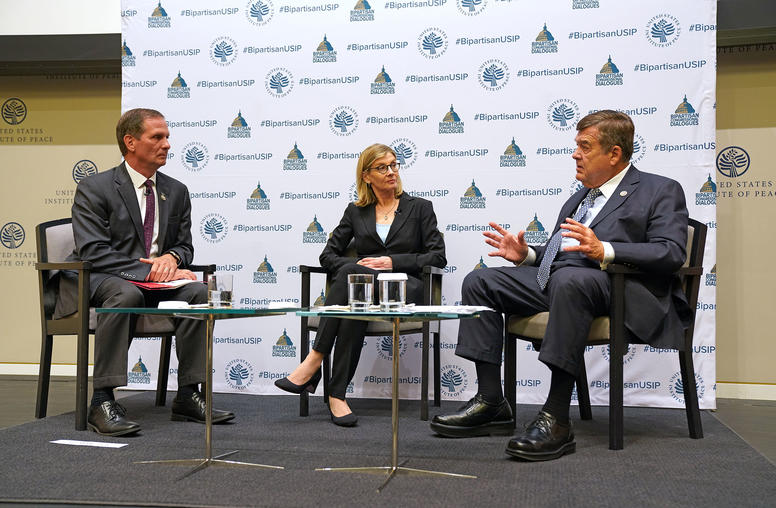
America’s Vital Needs on China Policy: Realism and Strategy
As U.S. national security debates focus heavily on the growing power and ambitions of China, two prominent members of Congress discussed how bipartisan policymaking can better protect America’s interests. Representatives Chris Stewart (R-UT) and Dutch Ruppersberger (D-MD) emphasized a need for strong engagement in Washington between the political parties, and for focused U.S. attention on China’s military buildup, intellectual property theft and cyber activities. Both congressmen are members of the House of Representatives subcommittee that oversees the U.S. foreign affairs budget, and both have played leading roles on national security and intelligence issues.
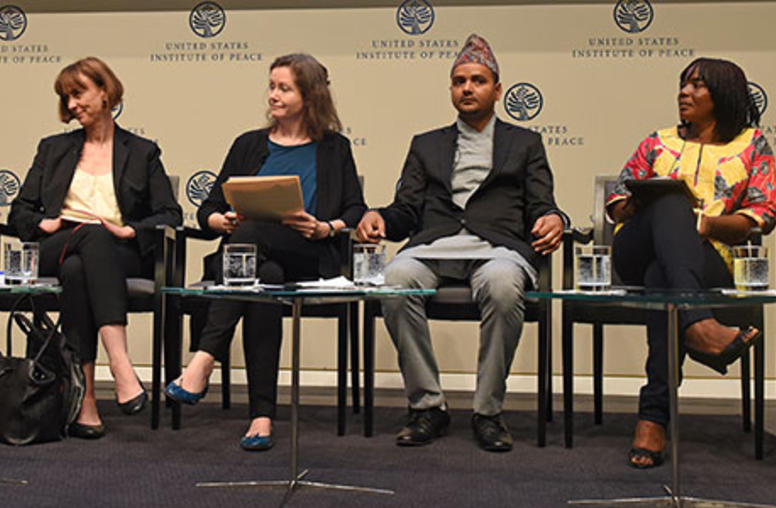
In Fragile States, Put Citizen Involvement First, Panel Says
A common strategy for state-building and development aid to transitional nations—getting basic services to the population—will fail to establish a government’s legitimacy unless citizens are included in the process, a leading researcher on conflict management said at the U.S. Institute of Peace.
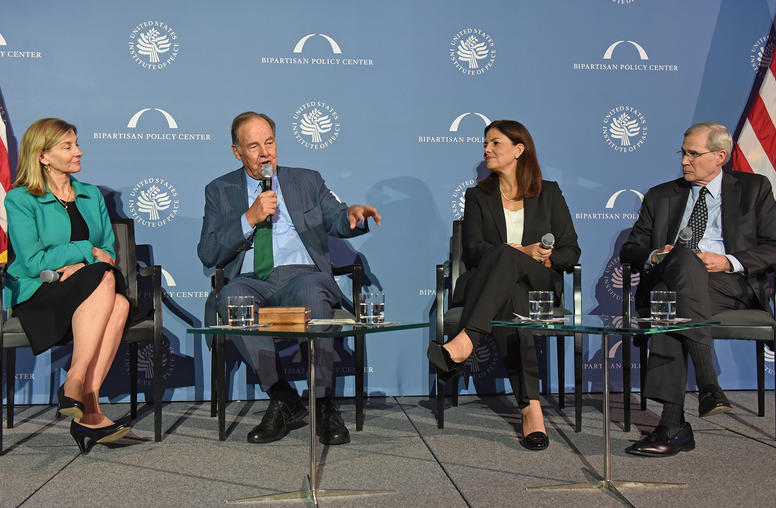
Terrorism has “Changed Dramatically” Since 9/11, Experts say Bipartisan Solutions Needed
Despite counterterrorism efforts that have “thwarted dozens of plots and thoroughly disrupted terrorist capabilities,” we “cannot rest” in our efforts to prevent violent extremism, said Director of National Intelligence Daniel Coats Tuesday night at an event at the U.S. Institute of Peace. The event, co-hosted by USIP and the Bipartisan Policy Center on the 17th anniversary of 9/11, recognized 9/11 Commission chairs Gov. Thomas Kean and Rep. Lee Hamilton for their work leading the Commission and for continuing this work through the Task Force on Extremism in Fragile States.
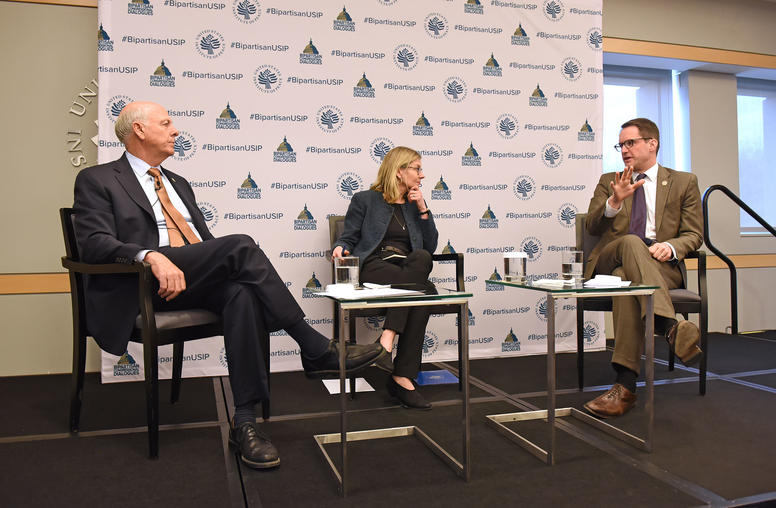
Evolving Cybersecurity Threats Require Bipartisan Approach
We live in an age of immense technological innovation and disruption. While these technologies make our lives easier, criminal groups and terrorist networks have the tools to exploit them, as policymakers struggle to keep up with rapid pace of change. Terrorist groups like the Islamic State and rogue regimes like North Korea employ these technologies to illicitly finance their operations, often using cryptocurrencies in order to evade detection. Despite the partisan rancor in Washington, Republican and Democrat members of Congress are coming together to counter illicit financing and wrestle with these emerging policy challenges.
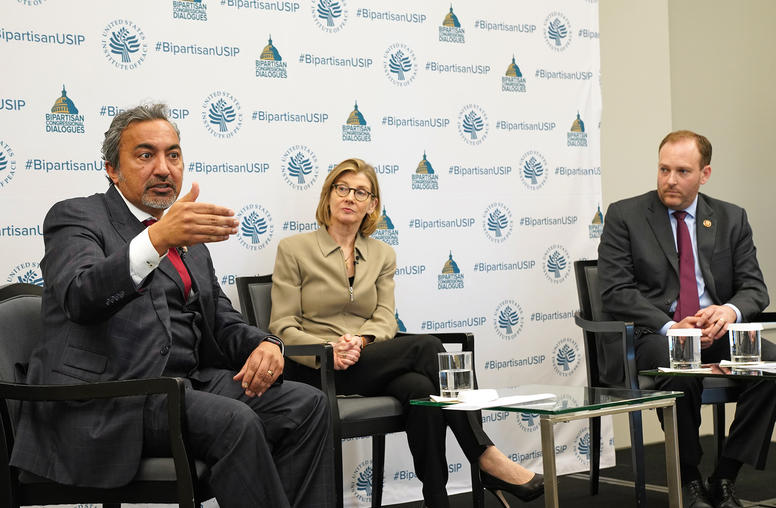
Congressional Oversight for Effective Foreign Policy
As leaders of the House Foreign Affairs Committee’s new panel on oversight and investigations, Representatives Ami Bera (D-CA) and Lee Zeldin (R-NY) agreed that examining the nuts and bolts of diplomacy and development work is a critical—and often unfulfilled—job for Congress.
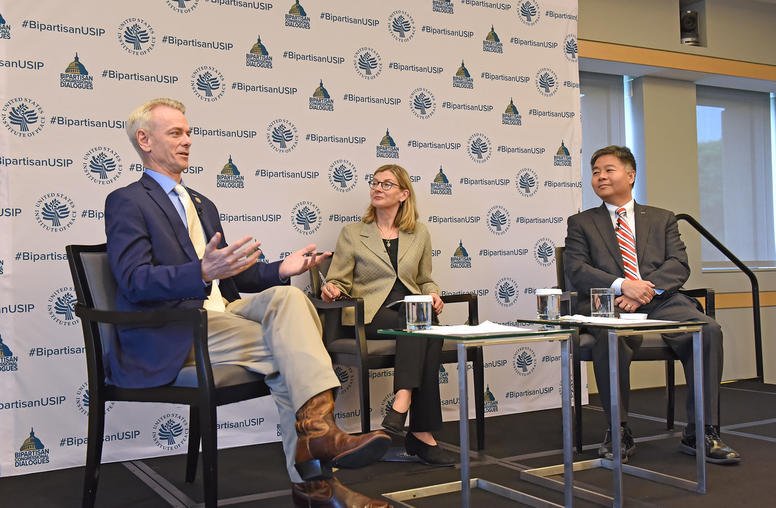
North Korea and the Fine Print of a Deal
With significant uncertainty surrounding the proposed Trump-Kim summit scheduled for June 12 in Singapore, South Korean President Moon Jae-in is in Washington this week to ensure the historic meeting happens. Whether its sanctions relief or appropriating peacebuilding funds, the U.S. Congress will play a pivotal role in any settlement with North Korea. Amid questions about Pyongyang’s intent and past negotiating behavior, Steve Russell (R-OK) and Congressmen Ted Lieu (D-CA), both military veterans, offered their support for the Trump administration’s participation in the summit during a bipartisan dialogue at the U.S. Institute of Peace.
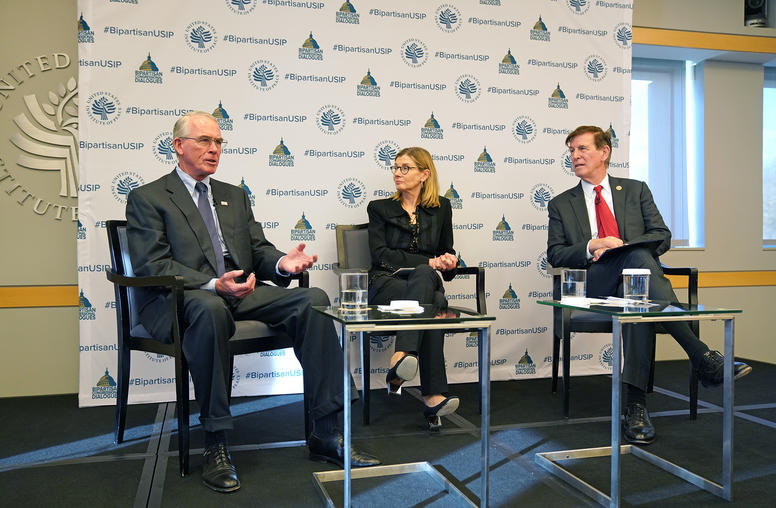
Can Soft Power Work in a Sharp Power World?
Speaking at USIP’s seventh Bipartisan Congressional Dialogue, Rep. Francis Rooney (R-FL) and Rep. Don Beyer (D-VA) discussed the threat posed by sharp power to global stability and how the United States, through bipartisan efforts, could use soft power to counter this threat.
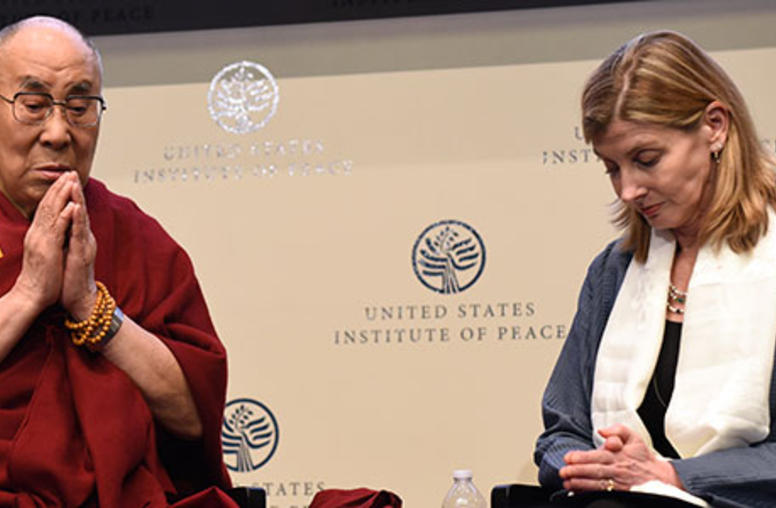
Dalai Lama Urges Greater Compassion, Role for Youth
A day after the United States’ deadliest-ever mass shooting, the Dalai Lama led a Washington audience in a silent prayer for peace. But he said prayers will be ineffective without “serious action” to erode religious and other communal divisions. Building peace in and among nations requires improved education, leadership by youth and women, and “personal contact” among people of disparate groups, the Buddhist spiritual leader said. “We have to live on this small planet… with a sense of brother...
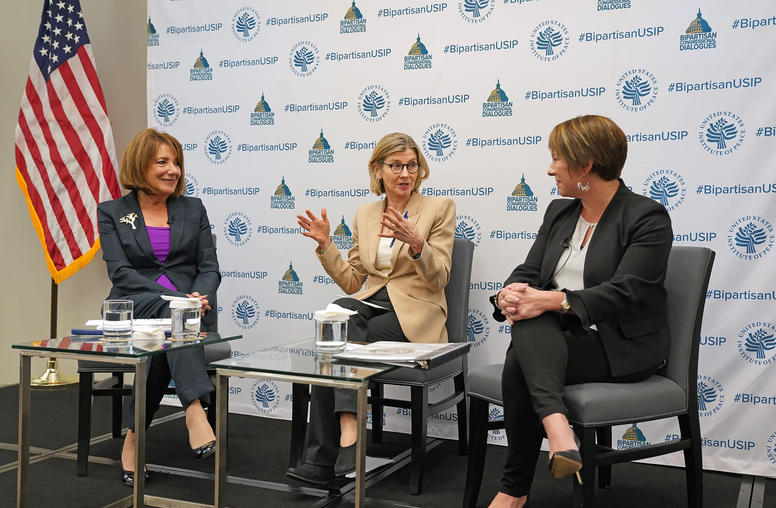
To Protect Afghan Women’s Rights, U.S. Must Remain Engaged
It’s been over a year since the U.S., led by Amb. Zalmay Khalilzad, opened talks with the Taliban aimed at ending the 18-year war. Over that year, Afghan women have demanded a seat at the negotiating table, worried that the hard-won gains made over the last two decades could be in jeopardy. Even with the peace process stalled, “it is vital that the U.S. remain engaged” to ensure that Afghan women’s rights are protected, said Rep. Martha Roby (R-AL) last week at the U.S. Institute of Peace’s latest Bipartisan Congressional Dialogue.
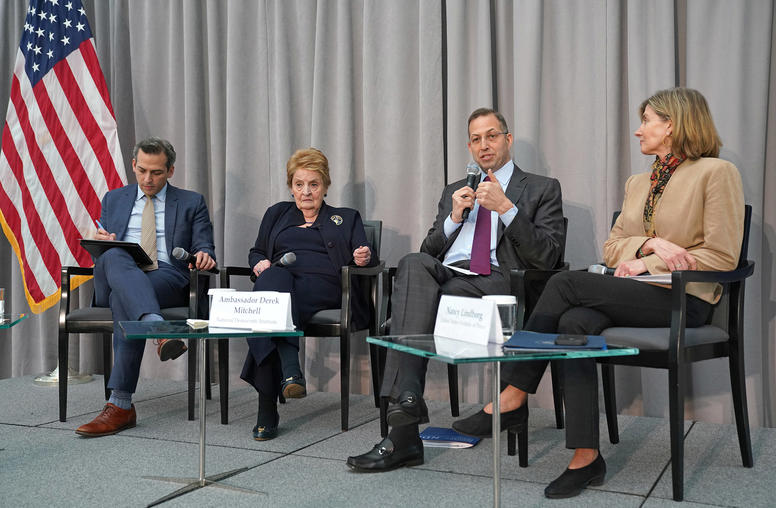
The Global Fragility Act: A New U.S. Approach
After several years of efforts by a bipartisan group of members of Congress and outside groups, Congress last month took legislative aim at a threat behind many of the world’s most pressing problems: fragile states. On December 20, as part of an appropriations package, President Donald Trump signed into law the Global Fragility Act, marking a new—if largely unnoticed— U.S. approach to conflict-prone states that can be vectors of violent extremism, uncontrolled migration, and extreme poverty.